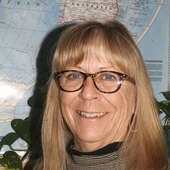- Research tips and McCook Brick Company- solid as a brick (12/16/24)
- Big Give appreciation and some railroad characters (11/15/24)
- George Randel becomes a landowner, gets married, and takes in a Buffalo Bill show (9/20/24)
- The memoirs of George F. Randel, early settler of Red Willow County (9/12/24)
- Vietnam War Memorial honors Nebraskans who served (6/13/24)
- McCook business promotions - just prior to 1893 stock market crash (5/30/24)
- Shall we dance? Meet you at the Gayway (12/8/23)
On the banks of the Republican
Wednesday, January 18, 2017

When settlers first came to McCook they had dugouts on the banks of the Republican. Whoever came up with the name Fairview for the early McCook settlement must have been talking about the view from those banks, a view that is drastically different today. Early pictures show a minimum of vegetation and so few trees one might think they are looking at an entirely different location. The river, which ran wide and swift in those days, did not allow for all the trees now living on its banks and in fact those trees wouldn't be in existence had the river not narrowed due to the building of the dams and control of the water flow.
During McCook's early days the settlers had to haul water from the Republican in wooden barrels up top wagons up the steep slope to the town site as it sits now. Water has been, and will always remain both the benevolent and the punishing father of southwest Nebraska submitting the early dwellers to devastating floods and droughts on what must have seemed a whimsical schedule.
Red Willow County was formed in 1873; six short years after Nebraska became a state. McCook's beginning was 1882 and Banksville's post office was established in 1886. Named after Edward Banks, a former sheriff, the population of this burg located approximately 12 miles southwest of McCook, peaked at 19 in 1910. Small as it was, Banksville had a news column in the McCook Tribune for over 10 years.
McCook Tribune, August 31, 1888: "While on the way to McCook, W. H. Benjamin's team became frightened at a badger and in rearing broke the center piece to the neck yoke and a single tree. The ponies played a jig on the double trees with their hind feet, and it was fortunate that no further damage was done."
Benjamin, a Civil War veteran, moved to Banksville from Iowa in 1884, and remained there raising his family until his death in 1905.
From the same issue of the Tribune comes this note: "Mr. Frank Solenberg of West Point, Indiana, a friend of Mr. Wm. Relph, is visiting in this highly moral community."
The Relphs' were also long term members of this community and two notes in the November 5, 1897 issue of the Tribune attest to that: "Born, to Mr. and Mrs. J. H. Relph, a nine-pound girl, Saturday October 30th." ,plus, "J. H. Relph and L. C. Caldwell were making proof on their homestead entries, Saturday last."
I had thought that most of the Rowland settlers were located east of Highway 83, but this note from the November 19, 1897 Tribune places at least some family in the Banksville area: "Uncle John Rowland wears a smile since his wife's return from an extended visit to Ohio and Missouri." Another Rowland is mentioned in the October 4, 1901 edition: "Harve Rowland is stacking rye and soon expects to thresh it."
Whoever wrote the Banksville news seemed to be able to insert things that had a personal note only residents of the area would understand such as this: "Elliott and Peters are warming up again, and the report is, that guns were in evidence." ( McCook Tribune, July 3, 1903) Were they hunting together or hunting each other?
Southwest Nebraska Genealogy Society's open library dates for research during the winter will be Wednesdays from 1-4 p.m. Our library is located at 110 West C Street, Suite M-3. It has been pointed out to me that few people know what the Merit building is and our entry is hard to find. Our door is on the south side of West C Street and is the same entrance as the door to access the Helping Hand Shop. We hope to have numbers on the door within the week.

